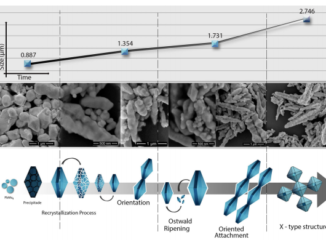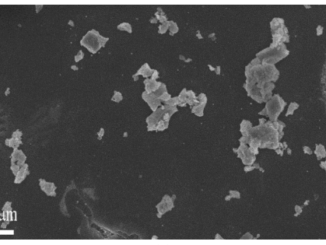
Pre-sintered Y-TZP sandblasting: effect on surface roughness, phase transformation, and Y-TZP/veneer bond strength
Abstract: Sandblasting is a common method to try to improve the Y-TZP/veneer bond strength of dental prostheses, however, it may put stress on zirconia surfaces and could accelerate the t→m phase transformation. Y-TZP sandblasting before sintering could be an alternative to improve surface roughness and bonding strength of veneering ceramic.
Objectives: The aim of this study was to analyze the effect of Y-TZP pre-sintering sandblasting on surface roughness, phase transformation, and the Y-TZP/veneer shear bond strength.
Material and Methods: The Y-TZP specimen surface underwent sandblasting with aluminum oxide (50 μm) pre-sintering (Z-PRE) and post-sintering (Z-POS). Z-CTR was not subjected to surface treatment. After ceramic veneer application, the specimens were subjected to shear bond testing. Surface roughness was analyzed by confocal microscopy. Y-TZP monoclinic and tetragonal phases were evaluated by micro-Raman spectroscopy. Shear bond strength and surface roughness data were analyzed by One-way ANOVA and Tukey tests (α=0.05). Differences in the wave numbers and the broadening bands of the Raman spectra were compared among groups.
Results: Z-POS (9.73±5.36 MPa) and Z-PRE (7.94±2.52 MPa) showed the highest bond strength, significantly higher than that of Z-CTR (5.54±2.14 MPa). The Ra of Z-PRE (1.59±0.23 µm) was much greater and significantly different from that of Z-CTR (0.29±0.05 µm) and Z-POS (0.77±0.13 µm). All groups showed bands typical of the tetragonal (T) and monoclinic (M) phases. Y-TZP sandblasting before sintering resulted in rougher surfaces but did not increase the shear bond strength compared to post-sintering and increased surface defects.
Conclusions: Surface treatment with Al3O2, regardless of the moment and application, improves the results of Y-TZP/veneer bonding and is not a specific cause of t→m transformation.
Author(s): Ramos-Tonello, Carla Muller; Trevizo, Bruno Freitas; Rodrigues, Raphaela Farias; et al.
Journal of Applied Oral Science
Volume: 25 Issue: 6 Pages: 666-673 Published: 2017
DOI: http://dx.doi.org/10.1590/1678-7757-2017-0131




